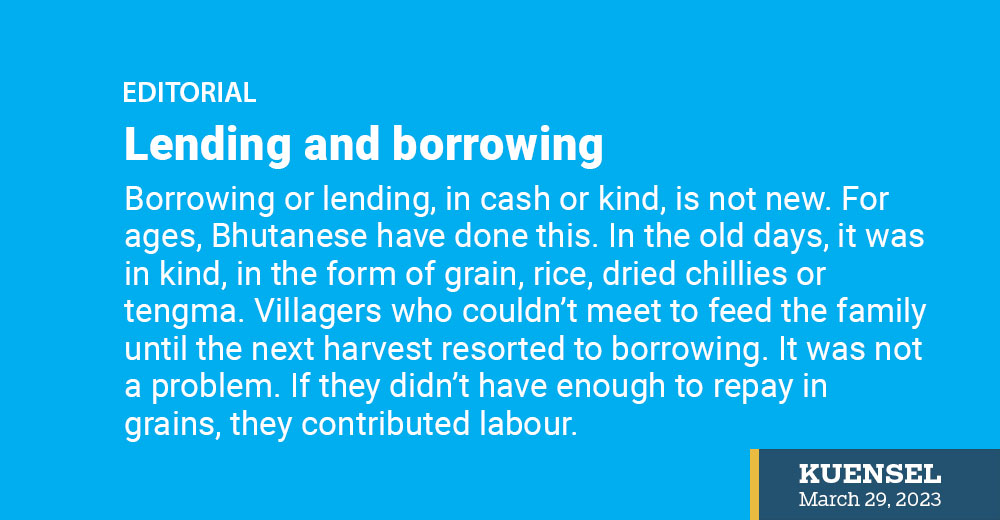Borrowing or lending, in cash or kind, is not new. For ages, Bhutanese have done this. In the old days, it was in kind, in the form of grain, rice, dried chillies or tengma. Villagers who couldn’t meet to feed the family until the next harvest resorted to borrowing. It was not a problem. If they didn’t have enough to repay in grains, they contributed labour.
Times have changed, Bhutan has developed. Consumerism grappled us and so did the greed for money. Not many could achieve it through the right or legal way. Some resorted to trying their luck at gambling. Some took advantage of the new trade or making quick money. If official channels of borrowing are regulated to protect people, many found tricks to circumvent the rule. Private money lending, legal or illegal, became the way out.
Recognising the issues surrounding private money lending, the central bank intervened. Those with the means to lend had to register and there is a capping. The ceiling is too low for many who need money in hundreds of thousands. This led to what is known as loan sharks. The rule is simple. Borrowers agree to pay 10 times what banks charge in interest.
Unfortunately, the business of lending and borrowing is not for reasons that could help a family make an extra income or start a new business. One in three cases of illegal money lending is related to illegal activities. Gambling is number one.
Private money lending has to be stopped because it is a social ill. There are stories aplenty of how families are ruined because of the repercussions of the business. There is a rule, but it is not effective. This is because people can circumvent the rule.
The tricks up the sleeves of those in the business of lending is scary. It can ruin a family or rob them of their entire belongings in a few months. Quite often, the case, illegal it may be, can qualify as a legal case. For the greed of money, they can manipulate legislation.
It is here where our laws or keepers of law can come in. Courts asking litigants to settle the case mutually, many now realise, is aggravating the issue. The regulations are straightforward. We cannot lend more than the authorised amount. The cases coming to courts involve millions. The tricks to bypass regulations are obvious – whether it is a property sales deed or inflating the principal with interest added on. The judiciary could easily prevent the private money lending cases from escalating.


